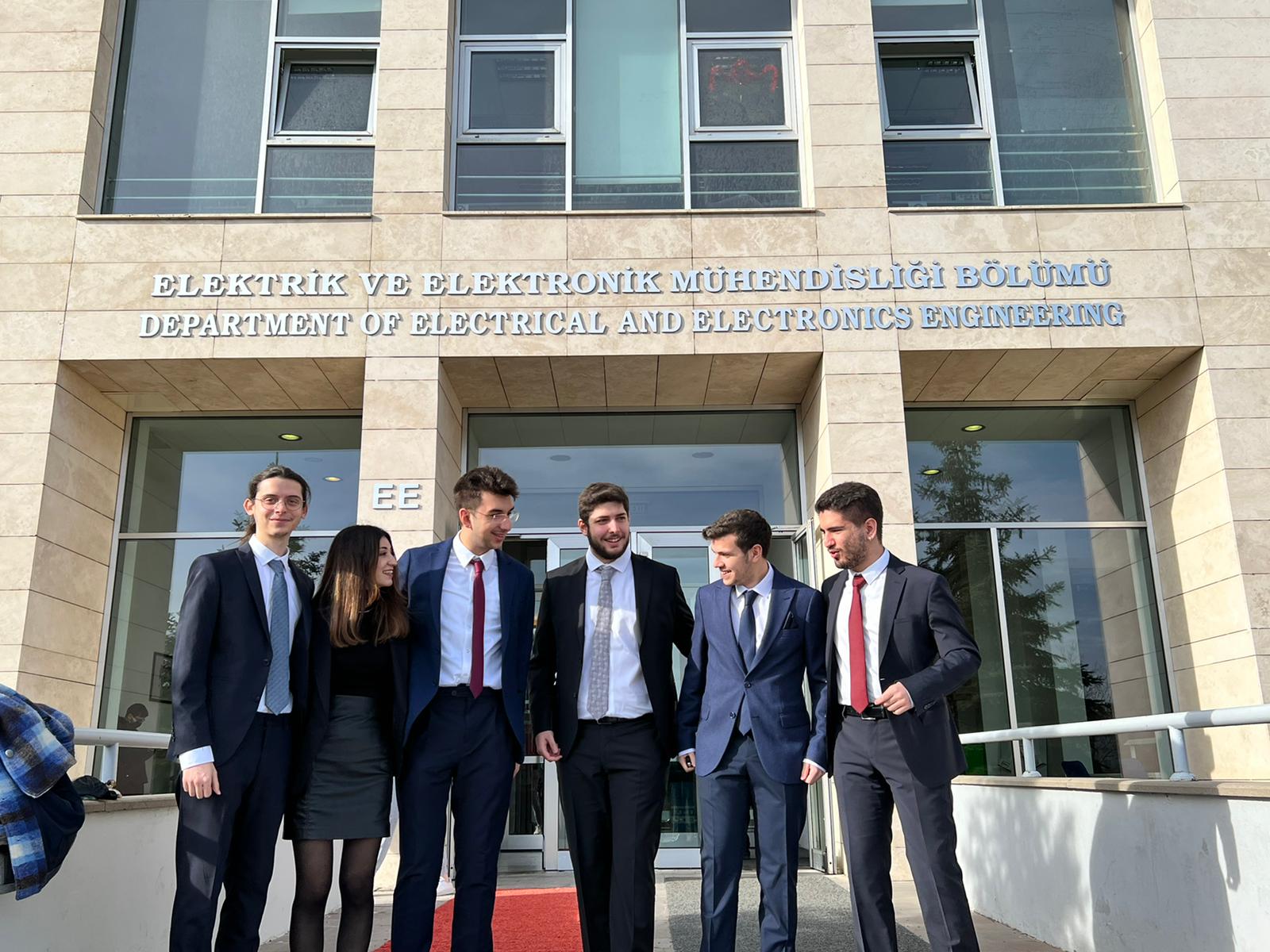μRFID
< Projeler Sayfası
Proje Adı
RF-Mikroakışkan biyoalgıç ve tanı sistemi için prototip devre ve sinyal analiz platformu
Şirket Adı
Unam
Şirket Mentoru
Dr. Gürkan Yeşilöz
Akademik Mentor
Prof. Hilmi Volkan Demir
Asistan
Murat Güngen
Takım Üyeleri
Etem Deniz Bozdoğan,
Başak Ceyhan,
Burak Tigin Dündar,
Murat Ege Ercengiz,
Kaan Emre Sanal,
Bekir Alkım Şentür

Özet
Bu projenin amacı üzerindeki örneği incelemekte kullanılan bir adet Radyo frekansı ile çalışan,
micro akışkan çipin rezonans frekansının bulunmasını sağlayan daha önceden laboratuvarda
kurulmuş bi sistemin işlevine sahip daha kompakt bir sistem tasarlamaktır.Kapasitif özelliğe
sahip olan radyo frekansı sensörü, üzerinde bulunan mikro akışkan damlacığa göre kendi
kapasitansında yaşanan değişim ile rezonans frekansında kayma yaşanmaktadır.Mevcut
sistem, çalışması için bir Doğru akım güç kaynağına ve birçok farklı laboratuvar aracına bağlıdır.
Kalibre edilmiş sonuçları elde etmek için bir VAA (Vektör Ağ Analizörü) ve çok fazla yer
kaplayan bir Veri Toplama Cihazı gibi bileşenleri içerir, pahalıdır ve çalışması için eğitimli kişilere
ihtiyaç duyar. Ayrıca sistem LabView ile çalışmaktadır.Bu projedeki ekipten beklenen, mikro
damlacığın rezonans frekansını belirlemek için, kullanımı kolay bir güç kaynağından güç alan,
kullanıma hazır (kullanıma hazır bileşenler) kullanarak ağ üzerinden kontrol edilebilen daha
sağlam bir yöntem bulmaktır.
Abstract
The aim of this project is to design a compact system that mimics the functions of a pre-existing
microfluidic radio frequency (RF) sensor system which works by finding the resonant frequency
of the contents of the droplets passing through its sensor. The RF sensor, which is a capacitive
sensor, can detect the contents of the microfluidic droplet with the change of capacitance,
causing a shift in the resonance frequency. The current system is dependent on a DC power
source to operate, as well as many different laboratory tools. It contains components such as a
VNA (Vector Network Analyzer) to obtain the calibrated results, and a DAQ (Data Acquisition
Device), which take up a lot of space, are expensive and need trained individuals to operate.
Also, the system is operating using LabView. What is expected from the team in this project is to
find a more robust method to determine the resonant frequency of the input microdroplet using
readily available (off-the-shelf components), powered by an easy-to-use power supply, and can
be controlled remotely during operation (via Web browsers using Wi-Fi).

